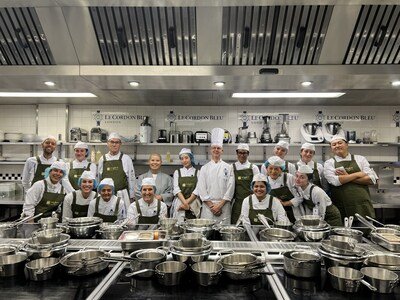
Korean Temple Food: A Culinary Tradition Goes Global

Korean Temple Food: A National Heritage Goes Global
Rooted in over 1,700 years of Buddhist wisdom, Korean Temple Food is catching the world's attention, especially after being named a National Intangible Cultural Heritage by the Korean government. This isn't just vegetarian fare; it's a way of life that champions respect for all living things, moderation, and gratitude. The cuisine's plant-based approach highlights the pure flavors of seasonal ingredients, embodying values like sustainability and mindful living that resonate globally today.
To showcase the deep cultural and spiritual roots of this cuisine, the Cultural Corps of Korean Buddhism has been busy organizing several international events. These initiatives range from grand festivals and academic symposia to cultural diplomacy activities, all aimed at sharing the essence of temple food with the world.
From Festivals to Symposiums: Celebrating Temple Food
This June, Seoul was abuzz with the 4th Korean Temple Food Festival at the aT Center, the largest event of its kind in ten years. Eleven temples from across Korea came together to host a vibrant array of programs, including lectures, hands-on workshops, and demos led by six master monks and nuns (Sunim) specializing in temple cuisine. The event drew in over 20,000 visitors within two days, with a notable 47% of attendees being in their 20s and 30s, reflecting the younger generation’s growing interest in sustainable and plant-based diets.
In August, the focus shifted to scholarly discussions at the Temple Food International Academic Symposium held at the National Palace Museum of Korea in Seoul. Experts from various countries, including the USA, UK, Italy, and China, gathered to explore the potential of temple food as a sustainable culinary culture. Brendan R. Walsh, Dean of The Culinary Institute of America, remarked on the importance of Ogwan-ge (the Five Contemplations) and their alignment with modern culinary practices.
“The principles of Ogwan-ge speak directly to the core of culinary practice and its future,” Walsh noted, advocating for the inclusion of these values in the institute’s curriculum.
Culinary Diplomacy in Europe
The spirit of temple food also reached Paris and London through cultural diplomacy events from late October to early November. In Paris, the dish 'Deodeok Beomuri' crafted by Temple Food Artisan Venerable Yeogeo Sunim was a hit at a dinner reception held by the Korean Embassy. Meanwhile, in London, the 'Korean Temple Food Week' was co-hosted with the Korean Cultural Centre UK and Le Cordon Bleu London, featuring lectures and a pop-up restaurant by renowned Temple Food Master Venerable Jeong Kwan Sunim. Emil Minev, Dean of Le Cordon Bleu London, expressed support for registering temple food with UNESCO, praising its harmony with nature and respect for life.
A Tradition Blossoming Worldwide
With aspirations for UNESCO recognition, Korean Temple Food is stepping onto the world stage as a model for sustainable and mindful living. The Cultural Corps of Korean Buddhism expressed hopes that this culinary tradition will evolve into a global symbol of spiritual and ecological well-being, linking Korea with the world. Visitors to Korea can experience this rich tradition firsthand at locations like the 'Korean Temple Food Center' in Seoul and 'Balwoo Gongyang,' the first Michelin-starred temple food restaurant.
The serene wisdom and sustainable ethos embodied in each dish are now reaching audiences worldwide, inviting them to partake in this unique culinary journey.















